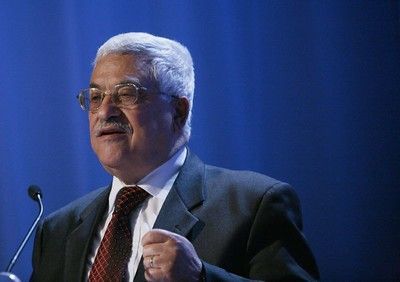Mahmoud Abbas, the Palestinian president, was widely condemned for remarks he made while sharing a platform with German Chancellor Olaf Scholz earlier this week. He said that the Palestinians had suffered “50 holocausts” over the past 50 years; using the word Holocaust in English to make his meaning clear. He was responding to a question on the anniversary of the terrorist attack that killed Israeli athletes at the Munich Olympics in 1972.
Although Abbas, also known as Abu Mazen, deserved to be condemned for his comments many of the criticisms were misplaced. He did not, despite what many claimed, deny the Holocaust happened. Instead he relativised it: diminished its significance by claiming it was only one of many bad things that have happened in the past.
Unfortunately it is not just Abbas who makes such claims. On the contrary, it has become part of a mainstream approach nowadays. For example, Britain’s official Holocaust Memorial Day on 27 January brackets together the Holocaust with a commemoration for the mass killings in Cambodia, Rwanda, Bosnia and Darfur.
The latter four were incredibly bloody and tragic mass killings but they were completely different in character for the Holocaust. They happened in the context of a bloody civil war. In contrast, the Holocaust was the culmination of a deliberate and systematic process of extermination. It was conducted by what was then one of the most advanced countries in Europe.
As I have argued recently on this site the relativisation of the Holocaust has reached even more absurd levels recently. For example, the widespread connection made in schools between the plight of Anne Frank, perhaps the best-known victim of the Holocaust, and the problem of bullying.
Under such circumstances it is hardly surprising that Abbas should compare the plight of the Holocaust to that of his own people. But it is of course is a complete travesty. Israel can justly be accused of discrimination against the Palestinians in certain circumstances but that is an entirely different matter from the Holocaust. Israel has never tried anything remotely like systematically annihilating the Palestinian people despite the impression given by the typically overblown rhetoric of anti-Israel activists.
The relativisation of the Holocaust is a far wider problem than Abbas alone.
More background
The German chancellor condemned Abbas for his remarks. In a tweet he stated: “For us Germans in particular, any relativization of the singularity of the Holocaust is intolerable and unacceptable. I condemn any attempt to deny the crimes of the Holocaust.” The phrasing here is interesting because it rightly condemned Abbas for relativising the Holocaust while at the same time pointing to denial.
German police are currently investigating Abbas for his comment. This is itself an outrageous attack on freedom of speech although not surprising since Holocaust denial is illegal in Germany,
Meanwhile, Abbas himself walked backed on his comments in a statement published by the Wafa Palestinian news agency. It stated that he reaffirmed that “the Holocaust is the most heinous crime in modern human history.”
But Abbas has form in this respect. In 2018 he made a speech in which he claimed that the social behaviour of the Jews, including money lending, was responsible for the Holocaust rather than anti-Semitism. The following day he apologised .
The Palestinian president - or more accurately the head of the rump Palestinian Authority on the West Bank – also did his 1982 doctoral thesis at Moscow’s Oriental College on how Zionists supposedly collaborated with the Nazis. More recently his thesis was turned into a book.
In Britain Ken Livingstone, the former Labour politician, has several times made similar claims about Nazi-Zionist collaboration.
Photo: Copyright World Economic Forum (www.weforum.org) www.swiss-image.ch/Photo by Yoshiko Kusano

